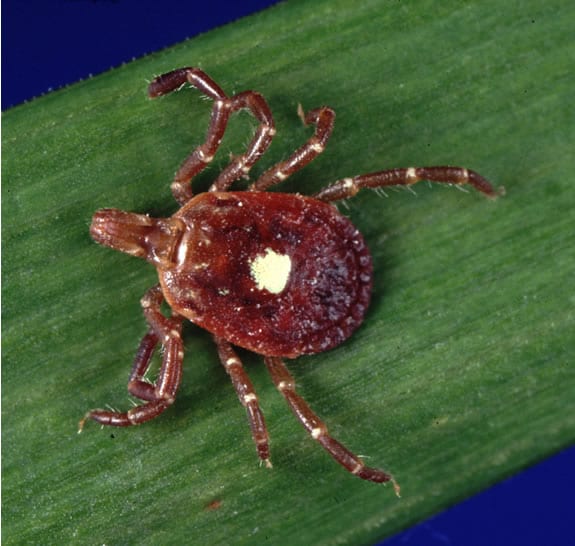After a case of the rare tick-borne illness, Powassan virus, was reported in Providence, Rhode Island in June, Patch released an article detailing the different diseases ticks can carry, how to prevent them, and what to do if you’re infected with one.
Tick-Borne Illnesses in Rhode Island
While this article relates to RI, ticks are found throughout the country, and this information is pertinent for anyone who spends a lot of time outside or is ever in an area that could be hiding the little pests. Rhode Island particularly has a high rate of these diseases, which is due to the rise in numbers of deer and mice. Additionally, more people are venturing out into areas where they’re likely to encounter ticks.
The Ixodes tick is most commonly found in this state, and it is often responsible for spreading three diseases: Lyme disease, babesiosis, and anaplasmosis. While these are the most common illnesses that you can catch from a tick bite, there are other, rarer conditions that you should keep an eye out for as well. These include Rocky Mountain spotted fever, tularemia, Borrelia miyamotoi, and the disease that was recently reported in RI: Powassan virus.
How to Prevent Them
Knowing which illnesses you can contract and what to look out for is an important step in preventing tick-borne diseases. In addition, here are a few other steps you can take to lower your risk of tick bites:
- Be aware of where ticks live
- Anywhere grassy, bushy, or wooded could be home to ticks
- Wear the right clothes
- Make sure all of your skin is covered when you venture out, even tuck your pants into your socks!
- Wear insecticide
- Take your clothes off in the garage or right when you enter your home
- This lowers the chances of ticks making their way through your house, then make sure to wash those clothes in their own load
- Perform a tick check when you return home
If you do find a tick, there is a proper way to remove them. Pull the critter off with tweezers but make sure that the entire tick – including the mouth – comes off. Place it in a bag, just in case you develop symptoms and need to show the doctor what type of tick bit you. Next, clean the area with either soap and water or alcohol.
What To Do if You Catch One
Treatments depend on which type of tick-borne illness you’re infected with, but it is important to begin treatment as soon as possible regardless of which disease you have.
Lyme disease is treated with two to four weeks of antibiotics, with options like amoxicillin, doxycycline, Ceftin, and cefuroxime axetil. For Rocky Mountain spotted fever, anaplasmosis, and Borrelia miyamotoi, the proper treatment is doxycycline. Tularemia treatment lasts for ten to 21 days and can consist of various antibiotics, such as ciprofloxacin, gentamicin, and doxycycline. Lastly, babesiosis may not require any therapy if patients do not show the symptoms. If they do, a combination of medications will be administered for a week to ten days, either atovaquone plus azithromycin or clindamycin plus quinine.
Hopefully, you get to enjoy the rest of the warm weather without any pesky ticks, but if you do happen to encounter one, PatientWorthy has you covered!








